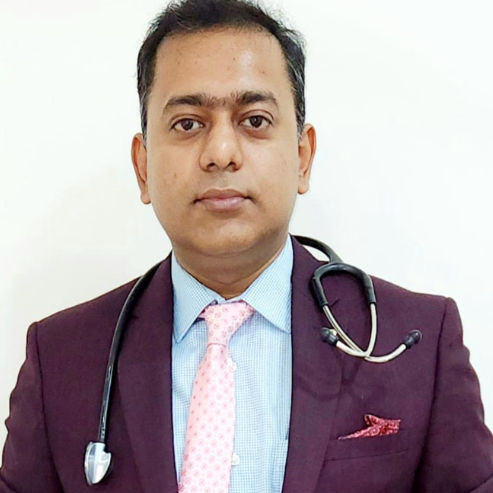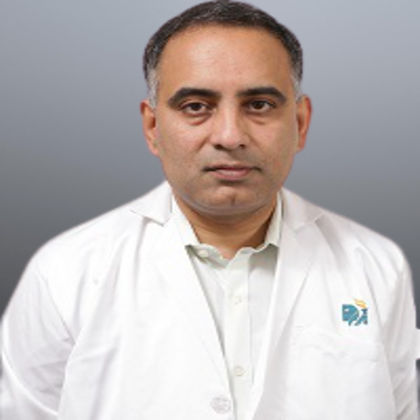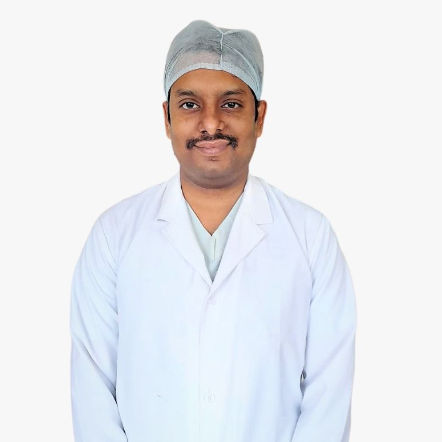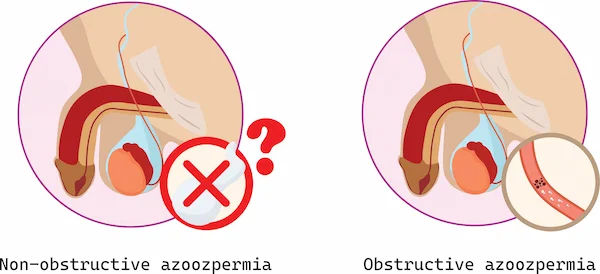Varicoceles And Fertility Restoration
Varicoceles are the swollen veins in one’s scrotum. Learn how varicoceles can affect male fertility and explore effective treatment options to restore reproductive health.

Written by Dr Sonia Bhatt
Last updated on 3rd Jul, 2025
Understanding Varicoceles and Their Impact on Fertility Restoration
The enlargement of veins in one’s scrotum is a common disorder called varicoceles. It is almost similar to varicose veins, which develop in one's legs. Though considered a common condition, varicoceles can sometimes cause discomfort and fertility issues.
Men facing conceiving issues must learn about varicoceles and their implications for male fertility. Keep reading to learn about the causes, symptoms, diagnosis, and treatment options of varicoceles.
Causes and Symptoms of Varicoceles
The causes and symptoms of varicoceles are discussed below:
Causes of Varicoceles
The one-way valves in the scrotum allow the blood to flow from one's testicles to the scrotum and then to the heart. Any malfunction in the veins can hinder blood flow, leading to blood accumulation in the veins.
This enlarges the veins inside the scrotum, leading to the development of varicoceles over time. However, the exact reasons behind varicoceles are still unknown.
Symptoms of Varicoceles
Varicoceles usually do not show any signs and symptoms, but some possible symptoms are listed below:
It can affect the size of testicles, causing one testicle to look smaller than the other.
Standing for long hours can cause discomfort or pain in the testicles.
In some cases, varicocele may lead to infertility, but it is not true for all varicocele conditions.
If the varicocele grows, it can be visible like a mass on the scrotum.
Consult Top uroologist
Varicoceles and Male Fertility
The warm blood from the abdomen is carried down to the testis, which is present in one’s scrotum. The warmth of blood affects sperm and testosterone production.
For optimal functioning of the testis, the blood must be at a temperature below 3 degrees from the body temperature. Thus, warm blood affects the testis functionality and male fertility.
Varicoceles may also occur due to the exposure of the testis to chemicals released from the adrenal gland. This gland is located close to the testicular vein.
Nearly one-third of men with varicoceles have been found infertile based on the size and presence of varicoceles on both or single sides of the scrotum.
Even if an individual has varicoceles on one side of the scrotum, it affects both testes as they function together. Varicoceles can affect male fertility irrespective of its size.
Evaluation and Testing for Varicoceles
Here are some of the ways to diagnose varicoceles:
Physical Exam
Doctors often perform physical tests to check one’s testicles when they are lying down or standing up. However, physical tests may not always be the best diagnosis method.
Scrotal Ultrasound
A scrotal ultrasound provides a detailed picture of spermatic veins, allowing the doctors to measure the accurate vein size and diagnose the scrotum for varicoceles.
Valsalva Manoeuvre
Smaller varicoceles can be diagnosed using this technique. The patient needs to stand, take a deep breath, and hold it. The doctor checks the scrotum while the patient bears down.
Semen Analysis
In this procedure, the patient masturbates in a container, and the sperm sample is taken to the laboratory to check the overall health of the sperm. It helps detect if varicoceles are affecting the individual’s fertility.
After diagnosing varicocele, the doctor classifies the condition in any of the three clinical grades based on the lump size in one’s testicle. The smallest lump is categorised as Grade 1, while the largest is Grade 3.
Treatment Options for Varicoceles
Varicocele treatment is not always necessary, but if the varicocele causes any of the following symptoms, one may opt for a treatment:
Testicular atrophy
Pain in the testicles
Infertility
Individuals diagnosed with varicoceles can also opt for assisted reproductive technique treatment. Early treatment enhances the chances of improved sperm production. Individuals suffering from varicoceles can also wear jockstraps or tight underwear to alleviate discomfort or pain.
Doctors may also suggest the following treatment if the situation gets worse:
Varicocelectomy
In this procedure, urologists access the patient's pelvis or abdomen to clamp the abnormal veins, redirecting blood flow to the healthy veins.
Varicocele Embolisation
It is a same-day, less-invasive procedure in which doctors insert a small catheter into the neck vein or groin. Next, the doctor places a coil into the catheter and varicocele to block blood from letting in the abnormal veins.
Fertility Restoration Techniques
In cases where surgical treatment fails to provide desired results, ART (assisted reproductive technologies) such as IVF (in vitro fertilisation) can be considered. In this technique, sperm are collected to fertilise the eggs outside an individual’s body and then implanted in the mother’s womb.
Prognosis and Success Rates
In most cases, varicocele does not come with any symptoms. Individuals with this condition may experience slight discomfort while performing specific activities, but no long-term health issues have been detected.
However, in some cases, varicoceles lead to fertility issues, and individuals should consult a doctor regarding this.
Preventive Measures and Lifestyle Modifications
Since doctors and scientists have not yet discovered the reason behind a varicocele, it is difficult to address its prevention. However, a healthy diet, regular exercise, and stress management activities can help prevent most of the physical issues in the human body.
Conclusion
Varicoceles are a significant concern for male fertility, but understanding their implications can lead to effective management strategies. Treatment options range from surgical interventions to lifestyle changes aimed at improving overall reproductive health.
Men can take proactive steps toward restoring fertility by addressing the varicoceles issues early on. It also helps navigate the complexities of reproductive health challenges.
Consult Top uroologist
Consult Top uroologist

Dr Sunita Samleti
Oncologist
18 Years • M.D. (Pathology)- TN Medical College, Mumbai University, Mumbai, Mar 2005 M.B.B.S. Grant Medical College, Mumbai University, Mumbai, Oct 1999
Chinagadila
Apollo Hospitals Health City Unit, Chinagadila

Dr Gowshikk Rajkumar
Oncologist
10 Years • MBBS, DMRT, DNB in Radiation oncology
Bengaluru
Apollo Clinic, JP nagar, Bengaluru

Dr. Sanchayan Mandal
Oncologist
17 Years • MBBS, DNB Raditherapy, DrNB Medical Oncology
East Midnapore
VIVEKANANDA SEBA SADAN, East Midnapore

Dr.sanchayan Mandal
Oncologist
17 Years • MBBS, DrNB( MEDICAL ONCOLOGY), DNB (RADIOTHERAPY),ECMO. PDCR. ASCO
Kolkata
Dr. Sanchayan Mandal Oncology Clinic, Kolkata

Dr. Raja T
Oncologist
20 Years • MBBS; MD; DM
Chennai
Apollo Hospitals Greams Road, Chennai
(175+ Patients)
Consult Top uroologist
Dr Debanga Sarma
Urologist
10 Years • MBBS, MS (GENERAL SURGERY)M.Ch (UROLOGY)
Guwahati
Apollo Clinic Guwahati, Assam, Guwahati
Dr S K Singhanina
Urologist
25 Years • MBBS/MS/DNB AND MCH UROLOGY
Guwahati
Apollo Clinic Guwahati, Assam, Guwahati

Dr. Pavan Kumar S K
Urologist
11 Years • MBBS, MS , Mch( Urology) DNB (Urology)
Bengaluru
Apollo Clinic, JP nagar, Bengaluru

Dr. Sandeep Maheswara Reddy Kallam
Urologist
6 Years • MBBS, MS (General Surgery), M Ch (Genito-Urinary Surgery), Post Doctoral Fellowship in Uro-Surgical Oncology
Visakhapatnam
Dr. SANDEEP MAHESWARA REDDY K _- best Urologist in visakhapatnam, Visakhapatnam
(250+ Patients)

Dr. Sudhakar G V
Urologist
25 Years • MBBS, MS(Gen.Surgery), DNB Urology
Bengaluru
Apollo Clinic, JP nagar, Bengaluru
